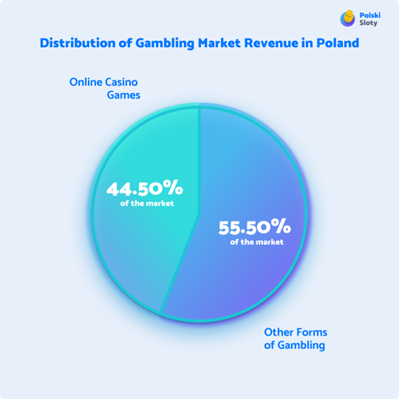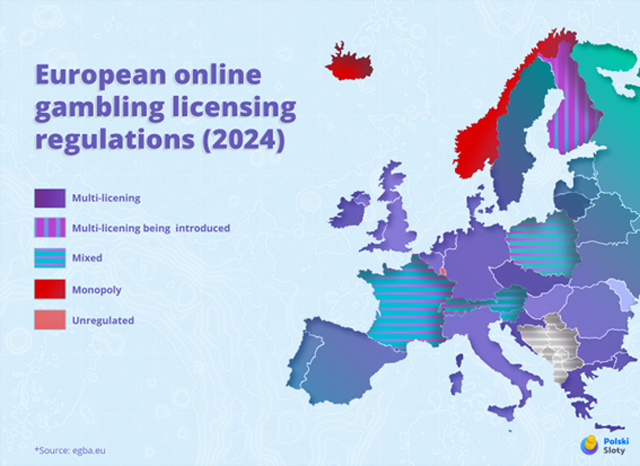Online gambling has become a global phenomenon. Over 1.6 billion people across the planet gamble regularly, and 4.2 billion gamble at least once a year. These statistics are the result of a recent survey involving 44 countries. It takes into account gambling venues, including land-based casinos, poker rooms, bingo halls, holiday resorts, bingo halls, cruise ships, and even places like the airports in Las Vegas, USA. But the thing that turned gambling from a popular pastime into the worldwide sensation it is today is the internet.
According to recent reports, the online gambling market will be worth a colossal $35 billion by 2029, making it one of the most lucrative spaces in the world. According to Yahoo Finance, a study carried out by Emergen Research found that the online gambling market was worth US$ 63.53 billion in 2022 and had a CAGR (Compound Annual Growth Rate) of 11.3%. It means that by 2032, we could be looking at an industry worth up to US$ 184.28 billion. A growth industry of these proportions is not only a phenomenon in social terms, but it also has a gigantic infrastructure and framework that impacts national economies.
This article looks at how this could happen, what this could mean for the wider gambling industry, and what the key motivating factors might be. Also, we’re having a closer look at how online gambling has influenced European economics.
Online Gambling in Poland
Online casino gambling in Poland might not figure in the top 3 EY countries in terms of global revenue, but it is one of the fastest-growing marketplaces in the EU and, therefore, a market to be reckoned with. A breakdown of the gambling market, published under “Revenues of the individual sectors of the gambling market in Poland from 2020 to 2021,” showed that online casino games accounted for 18.34 billion zloty of the 41.21 billion zloty spent across all forms of gambling. That’s an impressive 44.50% of the Polish gambling sector.

It’s continued to grow, so let’s delve a little more into the Polish online gambling scene. The last statistics published by Statista show that in 2022:
- Online gambling revenue was projected to reach US$ 9.16 million
- CAGR was expected to continue at 8.87%, resulting in revenue reaching US$ 15.06 million in 2027
The laws concerning online gambling are quite strict in Poland, and at present, there is only one state-owned, licensed operator – Totalizator Sportowy. But as a member state of the EU, regulations are in force that allow free movement of goods and services, which has prompted many offshore online casinos to welcome Polish gamblers. It has given players access to the global online community. Finding the best, safest sites, with lucrative no deposit bonus offers and great game choices, is made easy by using one of the top Polish online casino review specialists, Polskie Sloty.
The Online Gambling Industry in Italy
The first land-based casino opened its doors in 1683. It was the Casino de Venezia situated on the Grand Canal in Venice. Originally, it was primarily a theatre that incorporated a gambling wing. During intermissions, royals, and the rich and famous trotted off to the wing to enjoy a little flutter. The city of Venice eventually bought the establishment and turned it into a dedicated casino. 341 years later, in 2024. It is still a working casino.
As you can see, the history of gambling in Italy is perhaps the richest and oldest in Europe. Italy became the first EU state member to introduce gambling remotely comprehensively with Decree Law 223/2006, which later became Law 248/2006. In 2009, Law 88/2009 was introduced, stating the conditions to secure a remote gambling licence. Licences are granted via the “Agenzia delle Dogane e die Monopoli” (ADM), the Italian Authority of Customs and Monopolies. This licensing relates to online casinos based in Italy.
Like most gamblers, however, Italians use the Internet and gamble at offshore casinos licensed by industry-respected bodies such as the UK Gambling Commission, the Malta Gaming Authority (MGA), and the Curacao eGaming licence.
- According to Statista, the size of the online casino market in Italy will reach US$ 3.21 billion by the end of 2024.
- With a CAGR (Compound Interest Growth Rate) of 5.2%, the projected market value by 2028 will reach US$ 4.20 billion.
- ARPU (Average Revenue Per Person) by the end of 2024 is projected to be US$ 910.
- By 2029, the average number of Italians gambling regularly online is projected to be 4.3 million
The Online Gambling Industry in the UK
Despite its small size, the UK emerged as the second-largest gambling nation in the world in 2024, with expenditures reaching US$13.85 billion (£11.01 billion). This data was compiled for a survey of 61 countries by a Japanese online casino guide and subsequently published by Statista.
A survey revealed that 27.9% of the UK population had gambled online, with the annual growth rate expected to reach 7.4% by the end of 2024.
The gambling culture in the UK is particularly pronounced in sports and online betting. According to YouGov’s Global Gambling Profiles, around 49% of UK online gamblers spend more than £5 per month on fantasy sports and sports bets. Furthermore, Lottoland UK estimates that over 70% of UK adults regularly participate in the national lottery, equating to nearly 45 million people.
The Infrastructure Behind the Online Gambling Network in Europe
The infrastructure behind the online casino industry in Europe is huge, and it employs many thousands of people, and it’s not just the casinos themselves. It includes:
- Employees of online casinos
- People working for game software providers
- People working for licensing bodies
- The employees of online casino review sites
- Employees of fair game testing agencies
- People employed in gambling addiction help companies
According to Statista, in 2023, approximately 1.1 billion people were employed worldwide in the online gaming industry. This shows what an important employment sector the iGaming industry has become. Its health and growth are fundamental to not only the European economy but also the world economy.
Closing Thoughts
7 out of 31 countries in Europe now employ some kind of multi-licensing with regard to online gambling. The vast majority have taken a full multi-licensing approach, according to the EGBA (European Gambling and Betting Association). It’s a clear result of public demand for access to online gambling and each nation’s desire to ensure that their nationals can gamble safely.

The industry has also responded by making online gambling licences available to boost player safety in jurisdictions across Europe. There are now 267 online gambling licences to protect over 31.2 million players in 22 different European countries. Responsible gambling is also being promoted to ensure that players get the most out of their gambling fun.
This means that whichever country you call home, you can look forward to enjoying great online gambling experiences at quality on- and offshore casinos and sportsbooks.

 Hot Features
Hot Features













